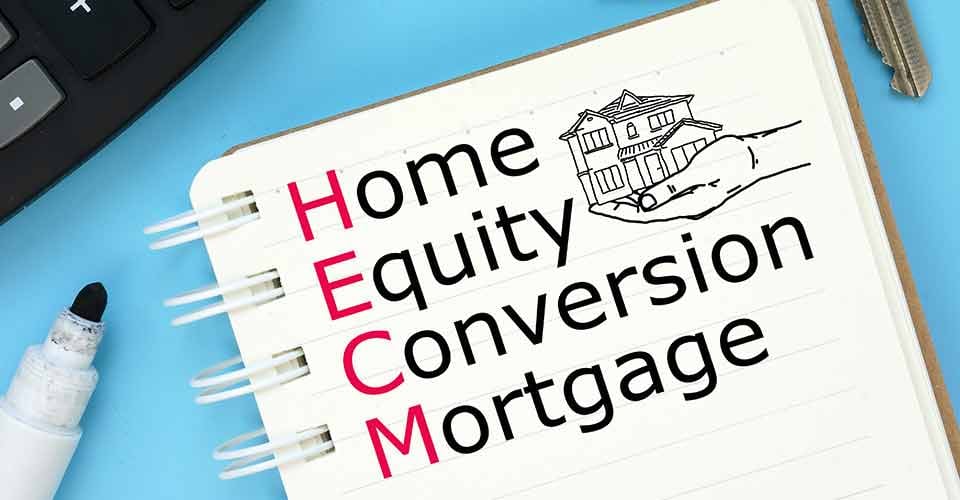Upsides and Downsides of Using Equity Release Mortgages in Retirement
Upsides and Downsides of Using Equity Release Mortgages in Retirement
Blog Article
Exploring the Different Kinds Of Equity Release Mortgages Available Today
Equity Release home mortgages present different choices for home owners aged 55 and over. equity release mortgages. These economic products satisfy different requirements and choices, allowing individuals to gain access to funds from their building. From life time mortgages to common admiration home mortgages, each kind uses distinctive benefits. Recognizing these alternatives is essential for making informed decisions. What factors should one consider when selecting one of the most suitable equity Release strategy? The details that follow might clarify this essential topic
Recognizing Equity Release Mortgages
Equity Release home mortgages supply property owners, normally those aged 55 and over, with a way to access the worth bound in their building without needing to offer it. This financial option allows individuals to convert a part of their home equity into cash, which can be used for various objectives, such as home enhancements, paying off financial debts, or funding retirement.Equity Release can take different types, yet it essentially involves borrowing versus the value of the home while preserving possession. Homeowners can select to obtain a round figure or a collection of smaller repayments, depending on their financial requirements and preferences.Additionally, the quantity offered for Release is affected by the home's worth, the property owner's age, and particular loan provider criteria. Generally, understanding equity Release home loans is essential for house owners to make informed decisions concerning using their home's equity while taking into consideration the lasting implications.
Lifetime Mortgages
Life time home loans stand for among one of the most prominent forms of equity Release. This economic product allows homeowners, usually aged 55 or older, to obtain versus the value of their home while keeping ownership. The lending, which is safeguarded against the home, accrues rate of interest over time but does not require month-to-month payments. Rather, the funding and built up interest are settled when the house owner passes away or moves right into long-term care.Lifetime mortgages offer flexibility, as debtors can select to get a round figure or choose a drawdown center, accessing funds as required. Significantly, lots of plans come with a no-negative-equity guarantee, guaranteeing that customers will certainly never owe greater than the value of their home. This attribute gives comfort, allowing people to enjoy their retired life without the anxiety of depleting their estate. Generally, life time home loans work as a practical option for those seeking financial backing in later life.
Home Reversion Plans

Drawdown Life Time Mortgages
While many home owners look for means to access their wide range, drawdown lifetime home loans provide an adaptable option that enables people to Release funds progressively. This type of equity Release mortgage makes it possible for property owners to obtain versus the value of their home while keeping possession. Unlike conventional lifetime home mortgages, drawdown plans allow debtors to access a portion of their equity upfront and withdraw additional funds as required, up to a fixed limit.This function can be particularly advantageous for those who want to handle their funds thoroughly, as it lessens interest buildup by only billing passion on the amounts drawn. Furthermore, drawdown life time home loans usually feature a "no unfavorable equity assurance," making certain that consumers will never ever owe greater than their home's worth. This choice matches retirees who desire economic safety and versatility, allowing them to satisfy unanticipated costs or maintain their way of life without needing to sell their property.
Improved Lifetime Mortgages
Improved Life time Mortgages offer unique benefits for eligible property owners looking for to Release equity from their buildings. Comprehending the eligibility requirements is crucial, as it establishes who can benefit from these specialized financings. Nevertheless, it is additionally important to assess the possible disadvantages related to improved options, making sure an all-around point of view on their usage.
Qualification Criteria Discussed
Recognizing the qualification standards for Boosted Life time Mortgages is vital for potential candidates seeking to access the equity in their homes. Commonly, applicants need to be aged 55 or older, as this age need is typical in the equity Release market. House owners must have a building valued at a minimal threshold, which can differ by lender. Significantly, the residential or commercial property must be their primary home and in excellent problem. Lenders typically analyze the home owner's wellness standing, as particular health and wellness conditions may improve qualification and advantages. Additionally, applicants ought to not have existing substantial debts secured against the home. Satisfying these requirements allows individuals to explore Improved Life time Home mortgages as a viable option for accessing funds bound in their homes.
Benefits of Improved Home Mortgages
After clarifying the eligibility standards, it ends up being obvious that Boosted Life time Home loans supply several considerable benefits for house owners aiming to leverage their residential property equity. Mainly, they supply accessibility to a bigger my response finance amount compared to standard life time home mortgages, benefiting those with health and wellness problems or age-related aspects that increase their life span threat. This improved loaning ability enables homeowners to meet various monetary demands, such as home enhancements or retired life costs. Furthermore, these home loans normally include versatile repayment options, allowing consumers to manage their funds a lot more properly. The no-negative-equity warranty better assures that property owners will never owe even more than their building's worth, offering satisfaction. In General, Enhanced Lifetime Home mortgages present an engaging choice for eligible house owners seeking financial options.
Possible Disadvantages Considered
While Improved Lifetime Home loans provide countless benefits, prospective downsides warrant cautious consideration. One considerable problem is the effect on inheritance; the equity released minimizes the value of the estate entrusted to recipients. Additionally, these mortgages can accumulate considerable interest in time, resulting in a considerable financial obligation that may exceed the initial lending quantity. There may also be restrictions on home alterations or rental, restricting homeowners' flexibility. Furthermore, boosted products often need specific health problems, suggesting not all property owners will qualify. Taking care of the charges and costs connected with these home mortgages can be complex, potentially leading to unexpected expenses. As an outcome, people should completely analyze their situation and consult economic consultants prior to proceeding.
Shared Gratitude Home Loans
Shared Gratitude Home loans represent an unique monetary setup that allows house owners to gain access to equity while sharing future home worth raises with the lender. This approach uses possible benefits such as reduced regular monthly payments, yet it likewise features disadvantages that must be meticulously considered. Understanding the qualification needs is crucial for those interested in this alternative.
Concept Overview
Equity Release home mortgages, specifically in the type of shared recognition mortgages, supply house owners an one-of-a-kind monetary option that enables them to access funds by leveraging the value of their home. In this setup, a lender gives a finance to the property owner, which is commonly paid back via a share of the residential property's future admiration in worth. This means that when the home owner offers the residential property or passes away, the lending institution obtains a percent of the enhanced worth, instead of just the first finance amount. Shared gratitude home loans can be appealing for those seeking to supplement their income or finance significant expenditures while keeping ownership of their home. Nonetheless, the economic implications of common recognition need to be meticulously thought about by potential consumers.
Advantages and Disadvantages
Shared appreciation mortgages can give substantial monetary benefits, they likewise come with notable drawbacks that possible debtors should take into consideration. These home loans permit house owners to gain access to equity in their residential properties while sharing a portion of any kind of future gratitude with the lending institution. This arrangement can be beneficial throughout times of increasing home worths, providing significant funds without monthly payments. The main drawback is the potential loss of equity; house owners may end up with significantly minimized inheritance for beneficiaries. In addition, the intricacy of the terms can bring about misconceptions regarding settlement responsibilities and the portion of admiration owed. It is crucial for borrowers to evaluate these elements meticulously before dedicating to a common recognition home loan.

Eligibility Requirements
What requirements must home owners fulfill to get a shared recognition mortgage? Mainly, candidates need to be at least 55 years of ages, assuring they are within the target demographic for equity Release products. Furthermore, the home needs to be their key residence and usually valued above a specified minimum threshold, commonly around ? 100,000. Lenders additionally assess the property owner's economic circumstances, including income and arrearages, to identify they can take care of the home mortgage responsibly. Notably, the home should be in great condition and free from substantial legal encumbrances. Property owners ought to additionally have a clear understanding of the terms, consisting of exactly how gratitude will be shared with the lender upon sale or transfer of the residential or commercial property, as this impacts total returns.
Choosing the Right Equity Release Choice
:max_bytes(150000):strip_icc()/dotdash-reverse-vs-forward-mortgage-Final2-6961b02571a444ec8bfad146b6138665.jpg)
Regularly Asked Inquiries
What Age Do I Required to Be for Equity Release?
The age requirement for equity Release normally begins at 55 for most strategies. Some companies may supply options for those aged 60 and above, showing differing terms based on private situations and lender policies.
Will Equity Release Influence My Inheritance?
Equity Release can influence inheritance, as the quantity obtained plus interest lowers the estate's value. Successors may receive much less than anticipated, depending you could try here upon the home's gratitude and the overall financial obligation at the time of passing.
Can I Move Residence With Equity Release?
The concern of moving residence with equity Release arises regularly. Usually, individuals can transfer their equity Release strategy to a brand-new residential or commercial property, but particular terms and conditions might apply, calling for appointment with the lender for support.
Are There Fees Related To Equity Release Mortgages?
Fees connected with equity Release home loans can consist of arrangement costs, valuation fees, and lawful prices. Additionally, there may be early repayment fees, which can influence the overall expense and financial effects for the customer.
Just How Does Equity Release Influence My Tax Obligation Situation?
Equity Release can impact one's tax obligation situation by potentially raising gross income, as launched funds are thought about funding. It typically does not incur prompt tax obligation responsibilities, making it essential to consult a monetary expert for individualized guidance.
Verdict
In summary, the selection of equity Release home loans readily available today supplies property owners aged 55 and over numerous pathways to access their home's value - why not try here equity release mortgages. Whether choosing a lifetime home loan, home reversion plan, or various other alternatives, each choice offers distinctive benefits tailored to individual financial needs. Careful factor to consider and consultation with a monetary expert are important to assure the picked equity Release service lines up with personal goals and monetary scenarios, ultimately promoting notified decision-making for a safe monetary future. Equity Release home mortgages present various choices for house owners aged 55 and over. Equity Release mortgages supply house owners, typically those aged 55 and over, with a way to access the value linked up in their property without requiring to market it. Improved Lifetime Home mortgages supply distinctive benefits for eligible home owners seeking to Release equity from their homes. Equity Release mortgages, particularly in the kind of common appreciation mortgages, offer home owners a special financial remedy that permits them to access funds by leveraging the value of their residential or commercial property. In recap, the selection of equity Release mortgages available today uses house owners aged 55 and over several pathways to access their home's worth
Report this page